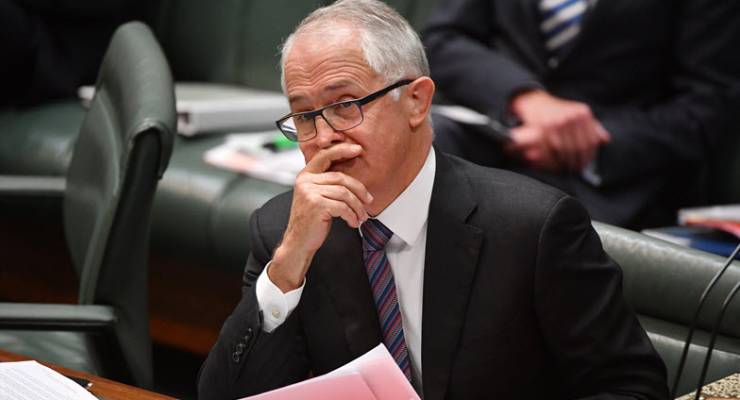
One of the recent criticisms being levelled by supporters of Tony Abbott against Prime Minister Malcolm Turnbull is that the government relinquished a political advantage by moving closer to Labor with this month’s budget. According to the delcons, “politics is about maximising differences”.
This blunt interpretation of the political maxim is unsurprising. Abbott’s reputation as a formidable opposition leader was based on him maximising the difference between the Coalition and Labor by opposing much of the Rudd and Gillard governments’ policy agenda.
Abbott convinced voters to distrust and despise the Labor government and promised to be whatever Rudd and Gillard were not. However, voters eventually tired of hearing what Abbott was against and wanted to know what he was for. That was when the wheels started to fall off the Abbott wagon.
It’s now 10 years since another successful opposition leader used a more nuanced product differentiation to defeat the government of the day. In what was an audacious move at the time, Labor leader Kevin Rudd deliberately positioned himself as an ideological extension of the prime minister, John Howard, on economic issues.
Rudd was accused of “me too-ism” and being Howard-lite, but the strategy was an effective one. Instead of maximising the differences, Rudd reduced the points of difference between himself and Howard, particularly those that were negatives for Labor, so that he could distil the focus onto the remaining few.
As a result, the opposition leader offered voters the same safe pair of hands as Howard, but with the bonus of ratifying the Kyoto Protocol and scrapping WorkChoices.
This approach wasn’t about making voters despise and distrust Howard (although there were people who certainly felt that way about the PM), but giving them comfort that it was reasonable and responsible to replace the old warhorse with new stock from a reliable bloodline. This would allow the nation to continue to prosper while getting on with important issues like climate action.
[Turnbull and Morrison stake their political future on a shift to the centre]
Of course, after defeating Howard, events conspired against Rudd to prove the new PM was neither a climate champion nor the fiscal conservative he had claimed to be.
Both Abbott and Rudd’s experiences suggests successful product differentiation might win elections but it might not be enough to hold government.
Nevertheless, this month’s budget could be seen as an attempt by Turnbull and Morrison to emulate Rudd’s 2007 campaigning success. Like Rudd, Turnbull and Morrison have attempted to reduce and therefore distil the points of difference between Labor and the Coalition.
By trying to close off arguments over points of difference that traditionally are negatives for the Coalition — health, education, and the NDIS — the PM and Treasurer hope to keep the focus on the difference that is in their favour: superior economic management.
Just as Rudd offered sound economic management plus the ratification of Kyoto and the scrapping of WorkChoices, Turnbull and Morrison are arguing they’re the safe pair of hands to keep the economy strong while also delivering Labor goodies such as Gonski and NDIS.
That’s where the Treasurer’s favourite zinger comes into play. Ever since budget night, Morrison has been claiming the difference between a Liberal and a Labor budget is the Liberal budget is fully paid for. Meanwhile, Bill Shorten is doing his best Abbott impersonation by simply saying nope, nope, nope.
There’s no doubt voters are put off by Tweedledum politics and want to be presented with real choices. That doesn’t mean, however, they won’t respond positively to parties that agree on important policy matters such as health, education and the economy.
Nevertheless, the Turnbull government has undoubtedly taken a risk adopting a Rudd-like approach to product differentiation, given it’s based on hope rather than distrust and fear.
Healthy policy difference should always be a good thing to have in Australian politics. And fear in politics is something we can definitely do without.








What was this? A list of assertions that include Turnbull is Rudd-like because Shorten is like Howard except not in power and stuff and something and Libs have economic super powers.
Please, inform us on factual differences of policy differences or prewarn us this piece is waffle.
I hope the bloody hypocrite crashes and burns.
Do you really want to reward, encourage and promote this craven egocentric political opportunist’s narcissist habits among the masses?
God the conservative bloviators are predictable. Let me tell you why this is garbage – Turnbull has destroyed all the good things Rudd did.
Quote: “the PM and Treasurer hope to keep the focus on the difference that is in their favour: superior economic management.”
Where is any evidence of this visible in the last 12 years?
+1
+2
+3
Well that’s +4
… and I would add that it’s a total of 15 years of tory crony capitalism, pennywise and pound foolish, it’s not a revenue problem it’s a spending problem, deficit phobia induced fear, presiding over the hollowing out of the Australian economy (here Hawke & Keating were guilty too) and to top it off building the biggest structural deficit in this small nation’s brief and inglorious economic history. Hollow men, hollow values.
Look at his alacrity to sell the sole of our (news)media ownership – to benefit ‘Rupert Mephistopheles’ and his Limited News machine – for a political “lifetime”* of good PR?
(*i.e. ’til he crosses Rupert)
(…. you don’t really think our newsmedia has a ‘soul’?)